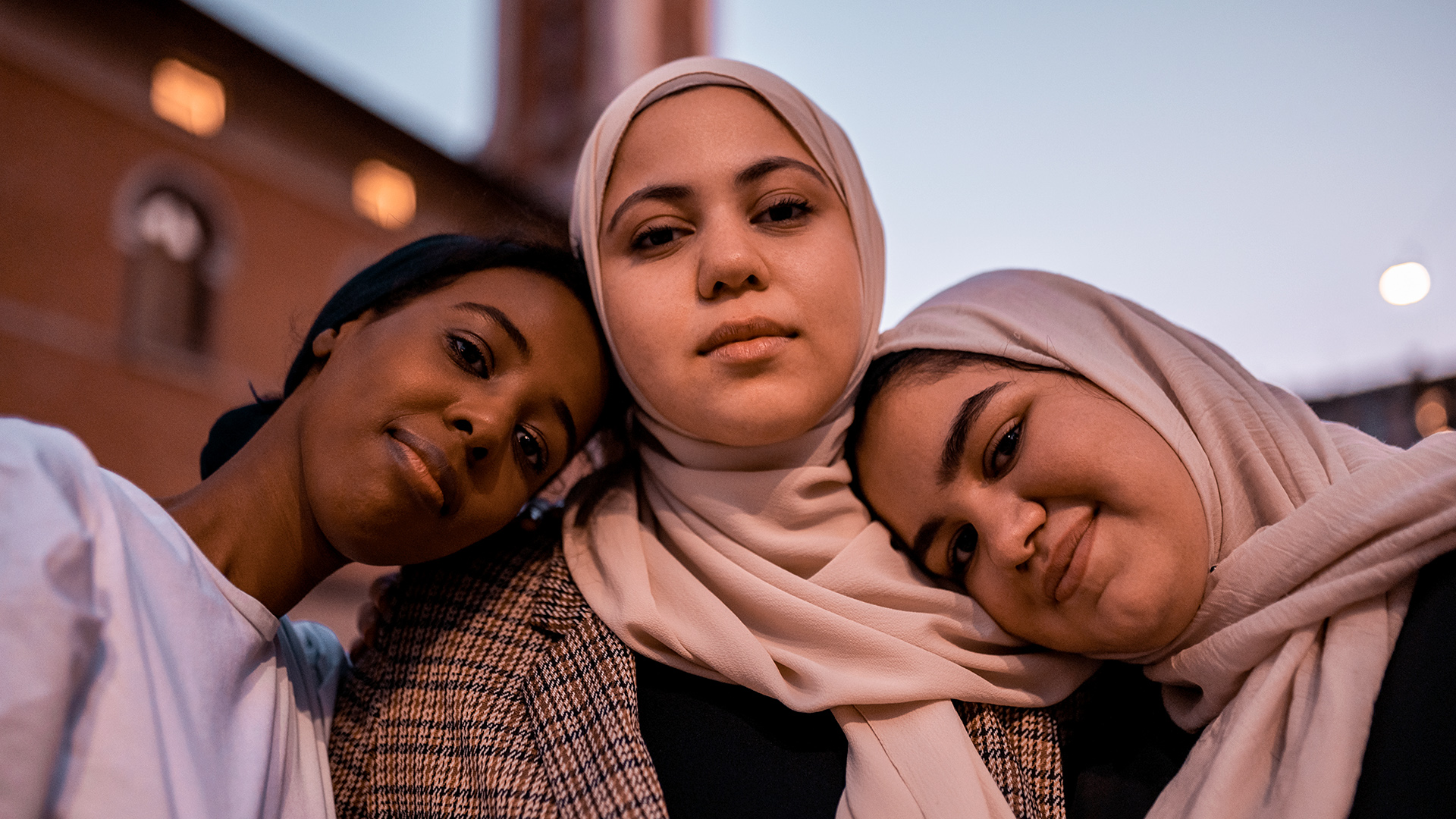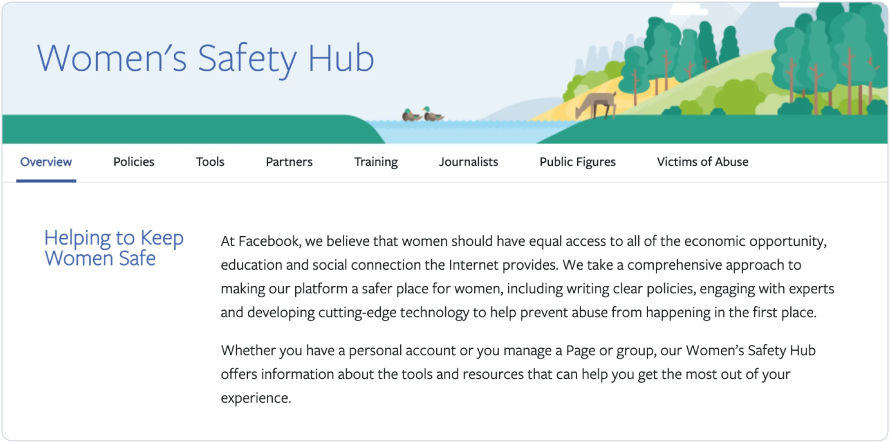The UN Women’s Generation Equality Forum is happening this week in Paris, which brings together governments, companies, youth and civil society to move the needle forward on gender equality. At Facebook, we have always believed that women should have equal access to all of the economic opportunities, education and social connection that the internet provides.
It’s why I joined Facebook as Head of Women’s Safety after over two decades working for nonprofits dedicated to keeping women safe — and today I’m excited to announce the launch of our Women’s Safety Hub and the formation of our Global Women’s Safety Expert Advisors, a group of 12 nonprofit leaders, activists and academic experts to help us develop new policies, products and programs that better support the women who use our apps.
These experts are distinguished in their fields and have contributed a tremendous amount to furthering the safety of women, on and offline. We’ve worked with them in the past, and are excited to put in place regular quarterly meetings dedicated specifically to advancing the safety of women online. Over time, we’ll include new experts from additional countries so we continue to hear from diverse voices.
With the help of our experts, we’ve developed our Women’s Safety Hub to centralize all the safety resources women need when navigating our platform. It includes specific resources for women leaders, journalists and survivors of abuse. Developed in consultation with nonprofit partners around the world and soon to be available in 55 languages, the hub contains video on demand safety trainings and a place to register for live safety training sessions that will be hosted in multiple languages.
Empowering our users through education is just one part of our work to keep women safer online. We’ve developed strong policies to protect users from online abuse and use tools, such as proactive detection technology to help catch content that may violate our policies. For example, on Instagram we’ve announced a new feature called ‘Hidden Words’ that lets people filter out potentially offensive messages and on Facebook we’ve given you more control over what you see. We have sophisticated technology to combat the sharing of non-consensual intimate images, and we have developed a variety of resources to help ensure all women feel safe using our platform. Thanks to user feedback and the experts we consult, we are constantly assessing the effectiveness of our tools and seeking out new options to empower women online.
We look forward to people using our Women’s Safety Hub and working with our Global Women’s Safety Expert Advisors in the months and years to come to help women feel safe on Facebook.
Facebook’s inaugural Global Women’s Safety Expert Advisors include:
Australia: Asher Flynn is Associate Professor of Criminology at Monash University and Vice President of the Australian and New Zealand Society of Criminology. Her work focuses on image-based abuse and technology-facilitated violence.
Brazil: Enrica Duncan is Project Director and Deputy Director of Nossas, a women-led laboratory for civic engagement and activism in Latin America that develops technology to equip citizens to impact policy making.
Global: Kalliopi Mingeirou is the Chief of the Ending Violence against Women and Girls Section at UN Women. Previously she worked for UN agencies, as well as international NGOs in the areas of human rights, women’s rights and refugee protection in different countries.
Hong Kong: Lisa Moore oversees Women’s Foundation’s research on gender issues and leads advocacy efforts that aim to transform existing attitudes that prevent women and girls from fully participating in society.
Indonesia: Tunggal Pawestri is an independent expert on gender equality, sexual rights and diversity issues and works to ensure more women are represented in public debates and leadership.
Ireland: Caitriona Gleeson spent two decades working to end gender-based violence and now leads Women for Election, a nonpartisan nonprofit which encourages and supports women in Ireland to run for politics.
Mexico: Margarita Guillé Tamayo is a social activist, founder and executive coordinator of the Interamerican Network of Women Shelters. She is an international advisor on gender-based violence for governments and nonprofits/NGOs.
Morocco: Stephanie Willman Bordat is human rights lawyer, NGO activist and founding partner at MRA Mobilising for Rights Associates where she works throughout the Maghreb (Morocco, Algeria, Tunisia and Libya) to promote women’s human and legal rights.
Philippines: Mariane Dorothy Rosario is a Global Advocacy Champion for the World Association of Girl Guides and Girl Scouts (WAGGGS) and a Girls Get Equal advocate for Plan International. She advocates to end online abuse and harassment and violence against women and girls.
South Korea: Ji-Yeon Lee is Associate Professor, Counseling Psychology, Hankuk University of Foreign Studies. She specializes in cyber-sexual violence and counseling psychology.
Uganda: Neema Iyer, is the founder and director of Pollicy, a civic technology organization. She works at the intersection of data, design and technology. Through feminist research, she tackles subjects such as digital inclusion and digital rights.
United States: Erica Olsen leads the TechSafety.org project at the National Network to End Domestic Violence and is an international expert on the intersection of technology and gender-based violence.

